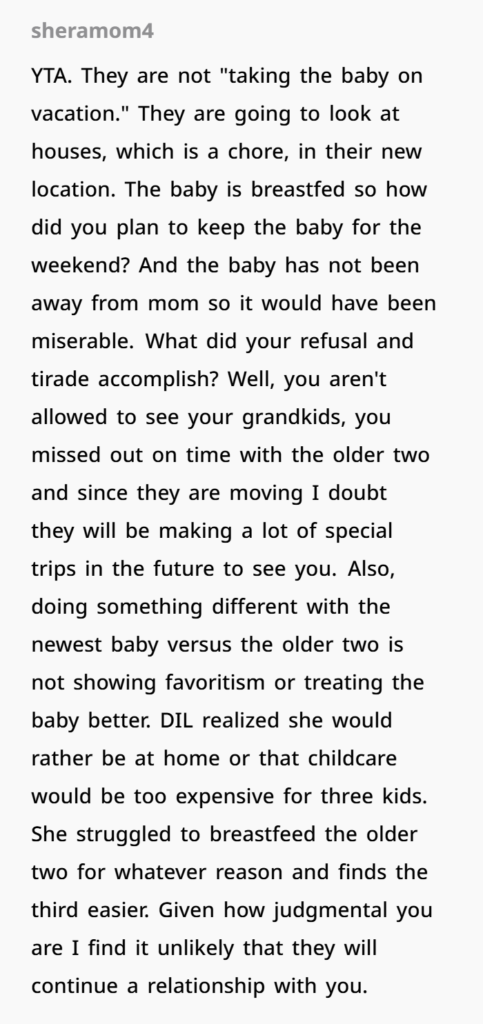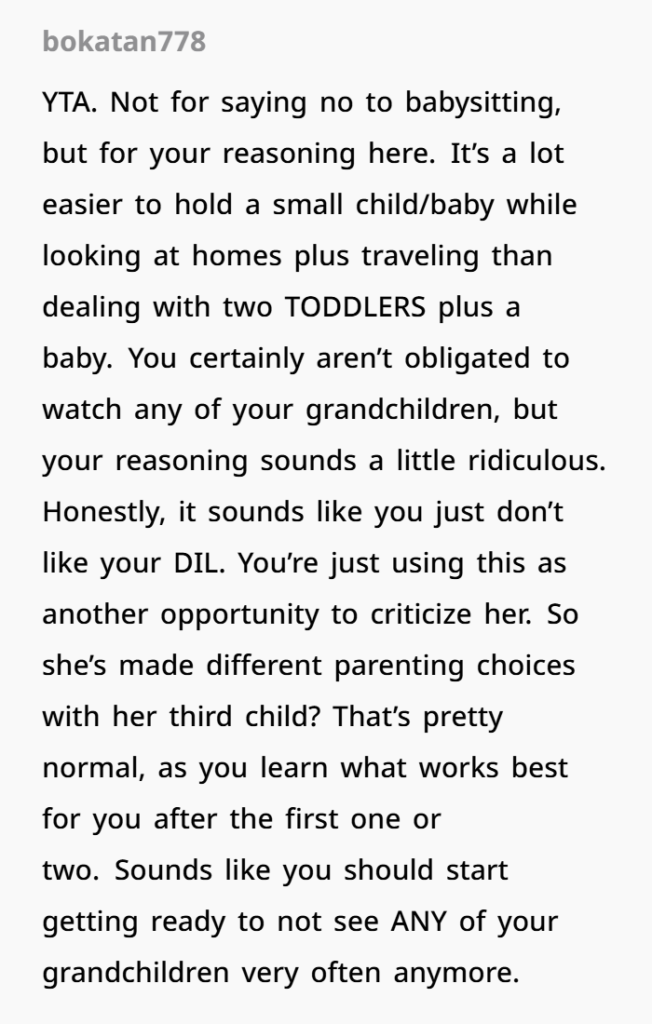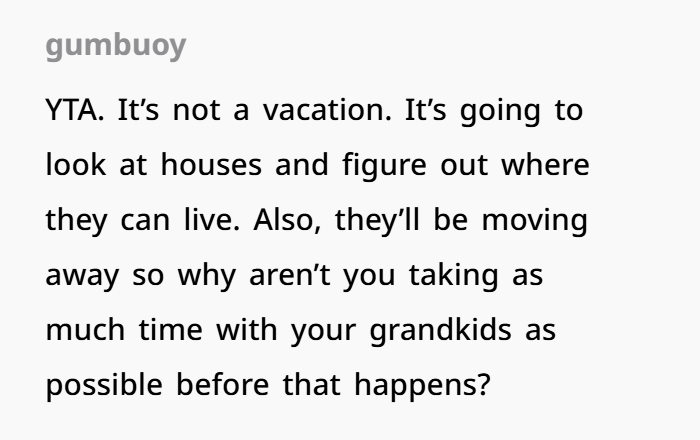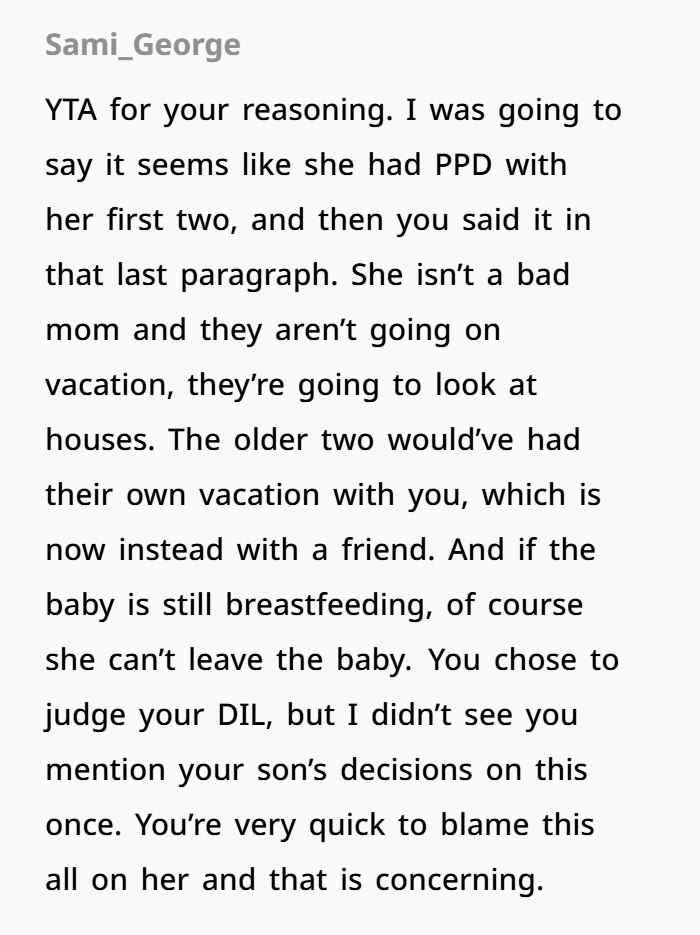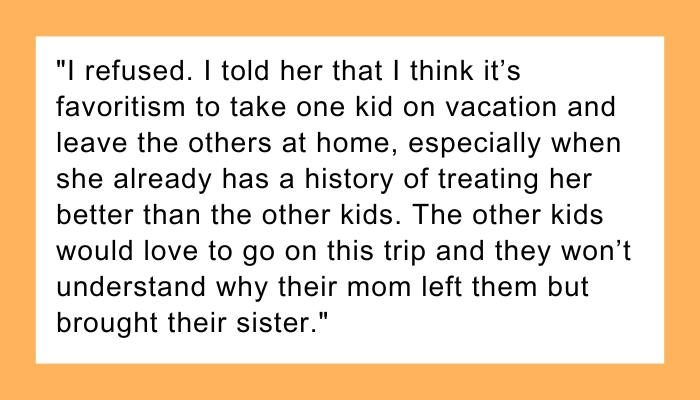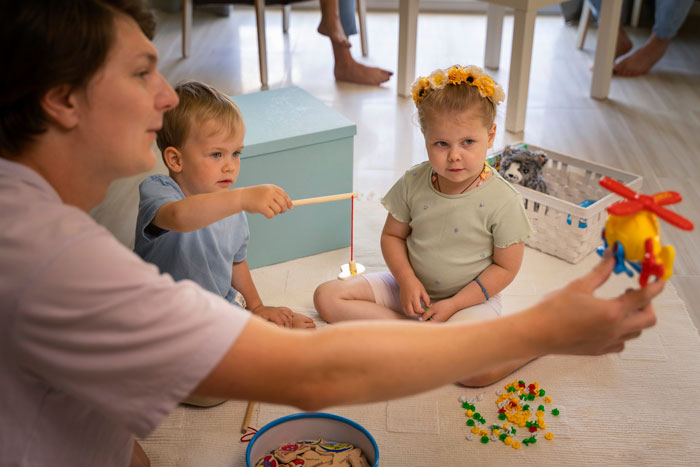MIL Tells Son And DIL It’s “All Or None” With Grandkids, They Decide It’ll Be None For The Weekend
Being a grandparent is often called the sweet spot of parenting. You enjoy the cuddles, cute drawings, bedtime stories—and best of all, you skip the 3 a.m. diaper changes and toddler tantrums. But what happens when a loving grandparent starts to worry about how her grandkids are being raised?
In today’s story, a grandmother—our Original Poster (OP)—was asked to babysit her two grandchildren for the weekend. It seemed like a simple childcare favor, but things took a turn when she shared her thoughts on the kids’ routine and parenting style.
What was supposed to be a fun weekend turned into a tough conversation about family values, parenting choices, and even favoritism. Now, instead of bonding with her grandkids, she’s left wondering if she damaged her family relationships.
Read for more info Reddit
It’s easy to jump to conclusions about someone’s actions, especially when their choices don’t align with our own
The author had always believed her daughter-in-law favored her youngest child more than her other two kids
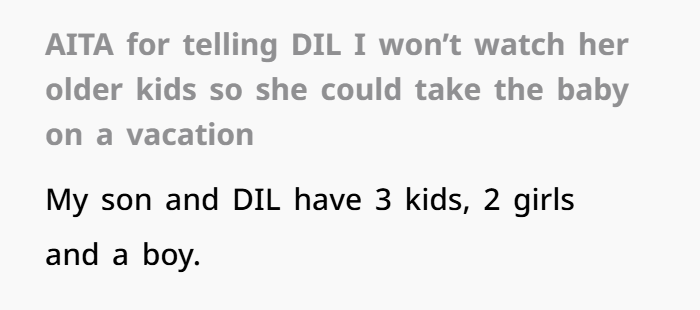
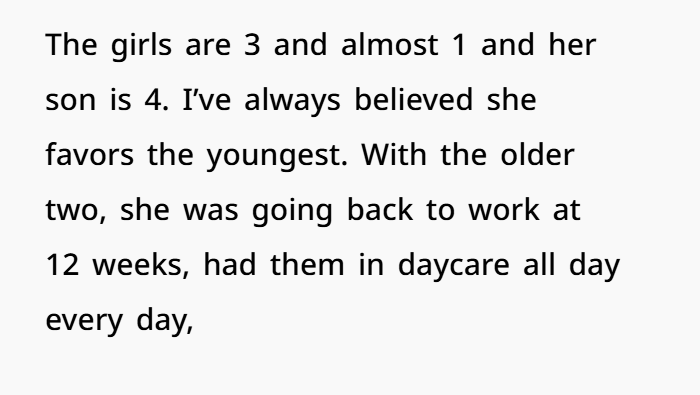
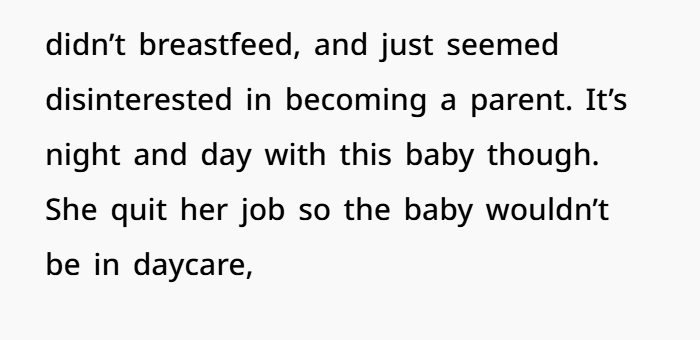
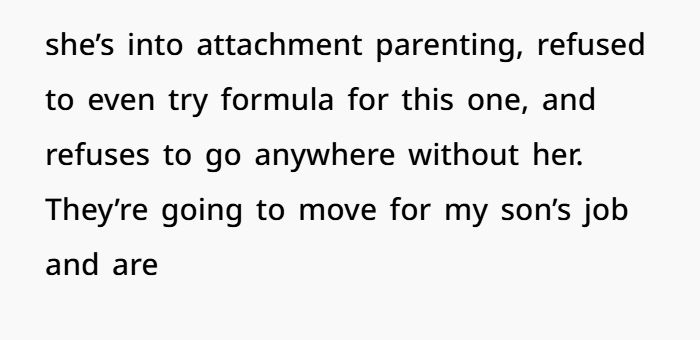
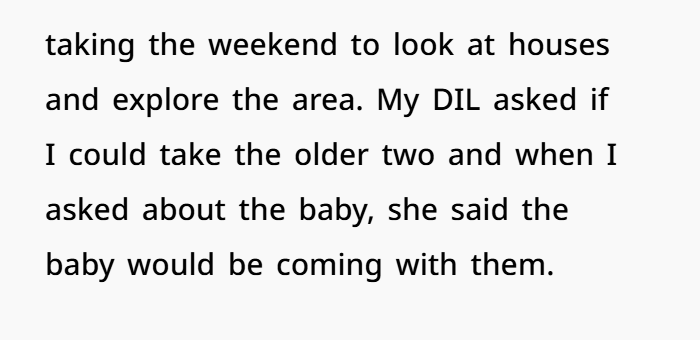
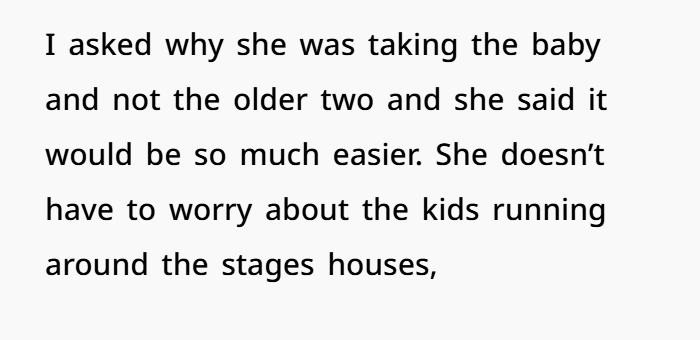
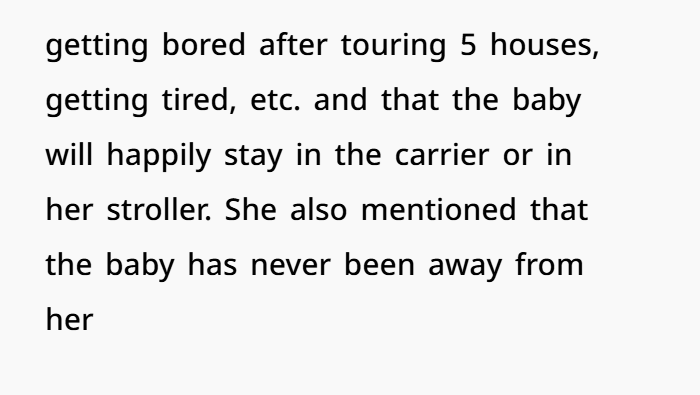
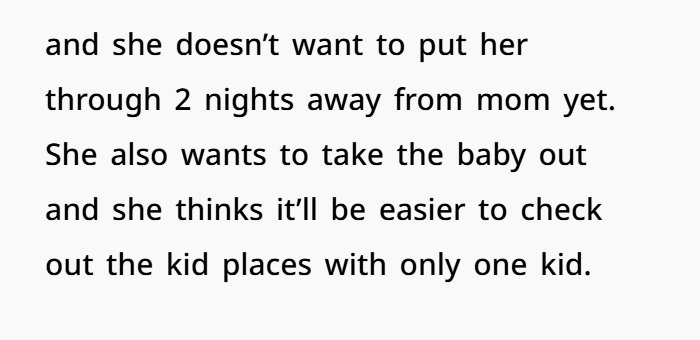
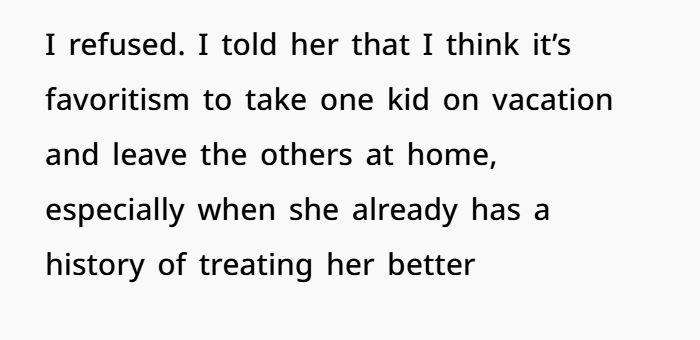
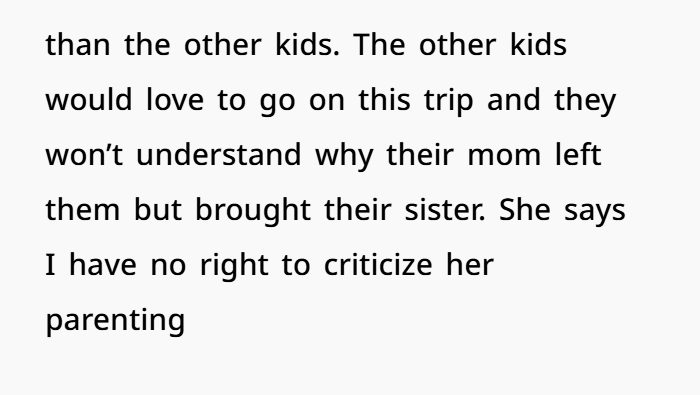
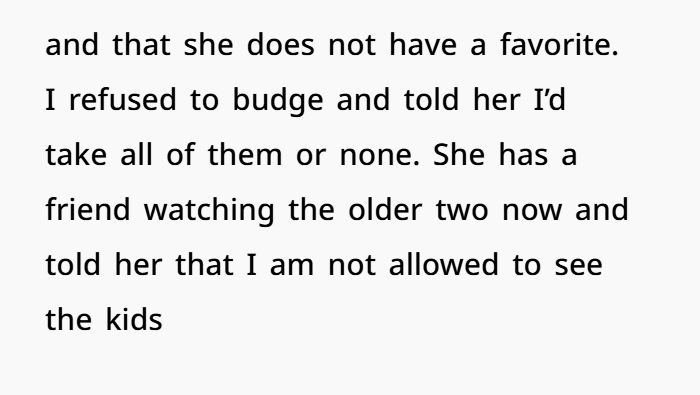
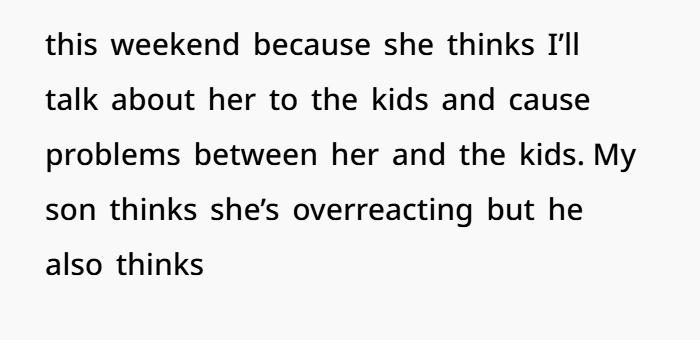
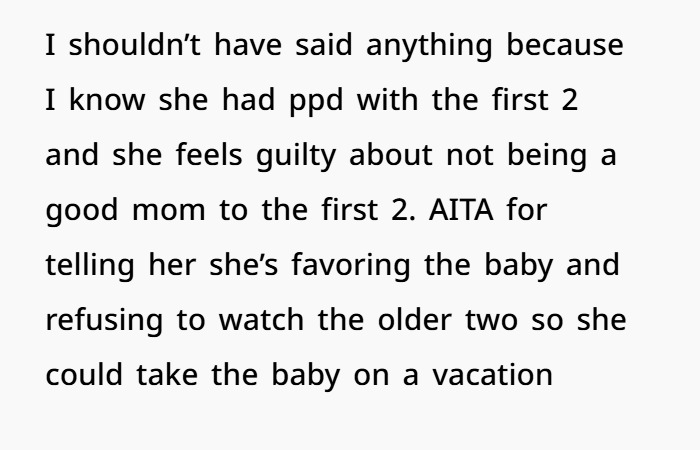
She insisted that the daughter-in-law was only taking the baby with her because she was playing favorites and demanded that all the kids stay with her
The Original Poster (OP), a caring grandmother, noticed something very different after the birth of her third grandchild. Her daughter-in-law’s parenting style had changed completely. While the first two children were formula-fed and placed in daycare at 12 weeks, the new baby was now at the heart of an attachment parenting routine.
This time, the mom quit her job, wouldn’t leave the baby with anyone—not even family—and refused to consider using formula. To the OP, it felt like special treatment for the third child. She couldn’t help but feel pushed aside, especially since she had been more involved with the first two grandkids.
The real conflict began when the daughter-in-law and her husband planned a weekend trip to check out new housing options for a possible job relocation. She asked the OP to watch the two older children—but insisted that the baby would be going with them. Her reason? The baby had never been apart from her, was easier to handle, and could just be carried or pushed around.
The OP disagreed. She felt it was unfair to take just one child on what seemed like a fun weekend trip while leaving the others behind. She offered an all-or-nothing choice: either she watches all the kids or none at all. That didn’t sit well with her daughter-in-law, who then asked a friend to babysit and told the OP she wasn’t allowed to see the grandkids that weekend.
Though her son admitted his wife may have overreacted, he also pointed out something deeper—his wife had experienced postpartum depression with their first two children. The guilt and emotional strain from that time may explain why she’s more protective and connected with the third child.
According to the Mayo Clinic, postpartum depression (PPD) is much more serious than the common “baby blues.” While the baby blues usually fade within a couple of weeks after birth, PPD can last much longer and deeply affect a parent’s ability to care for their baby and handle daily tasks. PPD usually begins within the first few weeks after childbirth but can also start during pregnancy or even months later.
WebMD explains that many women who have experienced postpartum depression with a previous child may choose attachment parenting with their next baby. This parenting style focuses on building a strong emotional connection through breastfeeding, skin-to-skin contact, and always responding to the baby’s needs. It’s about creating a secure, nurturing bond that brings comfort and healing for both mother and child.
When it comes to family roles, The Gottman Institute shares valuable relationship and parenting advice. They note that setting healthy family boundaries, especially with grandparents, is emotionally hard but necessary. Many grandparents offer unsolicited parenting advice, which often comes from a place of love and past experience.
The key, according to experts, is using respectful communication. That means:
- Acknowledge the grandparent’s intentions.
- Clearly and kindly express your own boundaries.
- Be open to listening to their feelings, too.
In the OP’s story, many online commenters said she wasn’t wrong for not babysitting—but they felt her judgmental attitude caused more harm than good. People pointed out that traveling for job relocation while caring for a breastfeeding infant is not a “fun vacation.” Also, choosing a different parenting style after experiencing postpartum depression doesn’t mean a child is being favored—it may simply be a healthier approach based on past challenges.
Netizens were on the side of the daughter-in-law as they insisted that the author was being unreasonable
